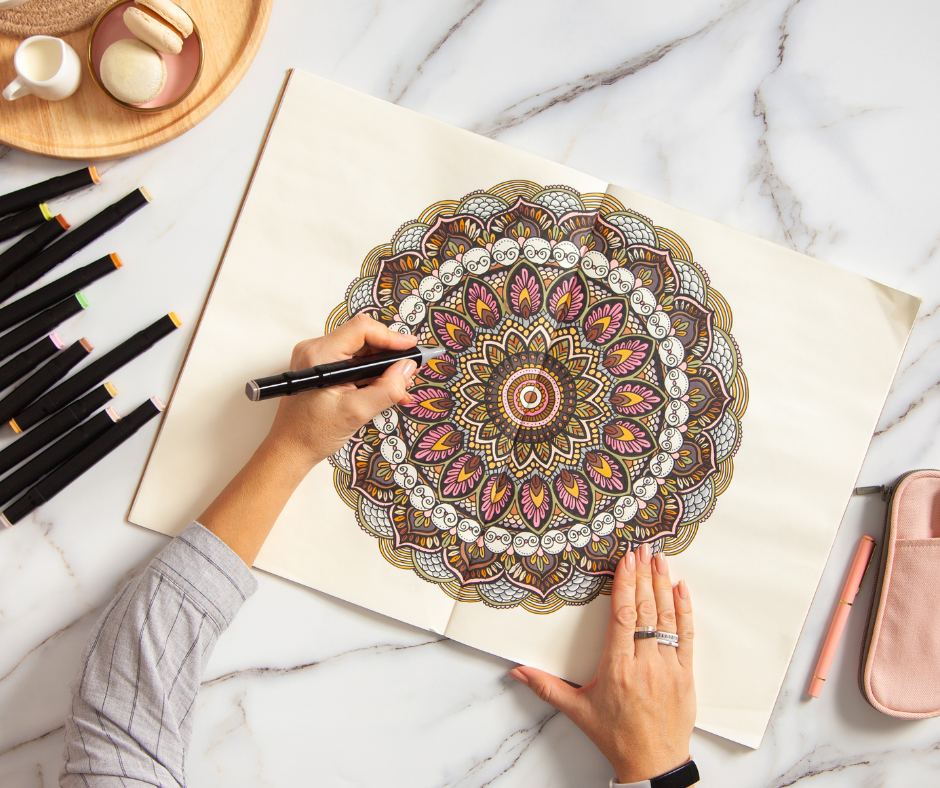DECLUTTER YOUR MIND: A Step-by-step guide to mental clarity

Just as physical spaces can become cluttered with unnecessary items, our minds can become overwhelmed with unnecessary thoughts, worries, and distractions.
Mental clutter can impede our ability to focus, make decisions, and live a fulfilling life. This guide offers practical steps to help you declutter your mind, reduce stress, and enhance your overall well-being.
Understanding Mental clutter
What is Mental Clutter?
Mental clutter consists of all the unnecessary and unproductive thoughts that occupy our minds. This includes worries, regrets, to-do lists, and distractions that prevent us from thinking clearly and living in the present moment.
The Impact of Mental Clutter
Mental clutter can lead to anxiety, stress, difficulty concentrating, and decreased productivity. Understanding the sources and effects of mental clutter is the first step toward clearing it.
Identifying the sources of Mental clutter
Common Sources:
- Unfinished Tasks: Projects and tasks left incomplete can linger in our minds, causing stress.
- Negative Thoughts: Self-doubt, criticism, and negative self-talk can crowd our mental space.
- Information Overload: Constant consumption of information from news, social media, and other sources can overwhelm our minds.
- Worries and Fears: Concerns about the future and fears of the unknown can dominate our thoughts.
- Regrets: Past mistakes and regrets can keep us stuck in the past.
Self-Reflection
Take some time to reflect on your thoughts. Keep a journal for a week, noting any recurring themes or thoughts that seem to dominate your mind. Identifying these patterns is crucial to addressing them.

Strategies to Declutter the Mind
Step 1: Practice Mindfulness
Mindfulness involves focusing on the present moment without judgment. It helps you become aware of your thoughts and feelings without getting caught up in them.
- Meditation: Spend at least 10 minutes a day meditating. Sit quietly, focus on your breath, and gently bring your attention back whenever your mind wanders.
- Mindful Breathing: Throughout the day, take moments to focus on your breathing. Deep, slow breaths can help calm your mind.
Step 2: Prioritise and Organise
A cluttered mind often results from trying to juggle too many tasks and responsibilities at once.
- Create a To-Do List: Write down all your tasks and prioritize them. Focus on completing one task at a time.
- Use a Planner: Schedule your tasks and appointments. Having a visual representation of your day can help reduce mental clutter.
Step 3: Limit Information Intake
In the digital age, we are constantly bombarded with information.
- Digital Detox: Set aside specific times during the day to unplug from digital devices. Avoid checking emails or social media first thing in the morning and last thing at night.
- Curate your Feed: Unfollow or mute accounts that do not add value to your life. Be selective about the information you consume.
Step 4: Practice Gratitude
Focusing on positive aspects of your life can help shift your mindset from worry to appreciation.
- Gratitude Journal: Each day, write down three things you are grateful for. This practice can help reframe your thoughts and reduce negativity.
Step 5: Address Unfinished Business
Unfinished tasks and unresolved issues can linger in your mind.
- Complete Small Tasks: Start by completing small tasks that have been weighing on you. This can create a sense of accomplishment and free up mental space.
- Set Deadlines: For larger projects, set realistic deadlines and break them down into manageable steps.
Step 6: Seek Support
Talking about your thoughts and feelings can help you process them and gain new perspectives.
- Therapy or Counseling: Consider talking to a mental health professional. Therapy can provide tools and strategies to manage mental clutter.
- Support Groups: Join a support group or community where you can share experiences and gain support from others.

Maintaining a clutter free mind
Daily Practices
- Morning Routine: Start your day with a clear mind by practicing mindfulness, setting intentions, and planning your day.
- Evening Reflection: End your day by reflecting on what you accomplished and letting go of any lingering worries.
Long-Term Strategies
- Regular Check-Ins: Periodically assess your mental state and identify any new sources of clutter.
- Healthy Lifestyle: Maintain a healthy diet, exercise regularly, and get enough sleep. Physical health greatly impacts mental clarity.
- Hobbies and Interests: Engage in activities that bring you joy and relaxation. This can help balance your mind and reduce stress.
Embrace mental clarity
Decluttering your mind is a continuous journey that requires practice and dedication. By implementing these strategies, you can create mental space for clarity, creativity, and peace. Embrace the process, be patient with yourself, and enjoy the benefits of a decluttered mind.
Download article below